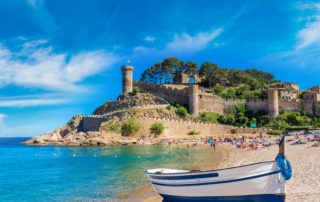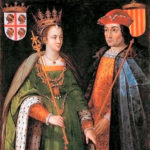
A classic habitat with flourishing tourism and bright beaches is now under the heavy dark clouds of political unrest – a fight for lost identitycentury against one for conditioned unity!

The rivalry of Spain and Catalonia, one as fierce as that of FC Barcelona and Real Madrid (read El Classico), has its roots dug deep into the 15th century when King of Aragon married Queen of Castile to join realms to give us the modern day Spain.
Now as Catalonia has successfully ruffled the Spanish feathers, it’s only fair that we try and understand the skeleton of what is happening and why!

So it wasn’t until the 1936-39 Spanish Civil War, which was followed by the suppression of Catalonian heritage by General Francisco Franco, that a cold wall dropped cutting out eastern Spain or Catalonia virtuously from the rest of Spain. An urge to claim their lost culture, even their language, is what has culminated into the Catalonian Referendum as we know today.
Things took a turn towards the better as democracy won over dictatorship. Today Catalonia has its own Generalitat, or governing body, with extensive autonomy. But not that long back, sometime in 2010, the Spanish court ruled limiting the autonomy of the Catalonian authorities. This shot the pride of Catalonia’s dignity. Also fueling a desperate urge of separation is the crunching figures of the Spanish economy. Catalonia’s Barcelona and other rich establishments feel a one-way outflow of huge funds to Madrid, which fails to find its way back in any balancing way.
What we know so far is that out of the 43% of the Catalans that did vote on 1st October 2017, 90% voted for the right to independence. And one would think it was a simple judgement! It was anything but that. First the Catalan President suspended that result, and then sprung up news of negotiation which led to final claim to independence. Ridiculing this whole fiasco, the Spanish Government did what they could to prevent the fracture.
Article 155 of Spain’s 1978 constitution, which has been invoked for the first time in democratic Spain, allows Madrid to impose direct rule incase if crisis a.k.a. the ‘nuclear option’. This is mean dissolving the regional government and hold up fresh elections. The impeding fracture can take heavy tolls on the Spanish Index, IBEX, as Catalonia accounts for almost 20% of the country’s GDP. Not only that the exit from the Spanish canopy, would also mean a withdrawal of the EU umbrella. The EU accounts for 65% or exports in Catalonia alone and over 70% of foreign investments. Economically speaking, the Catalexit could sum up a bigger buster for EU than Brexit.
Will investors stay wary of yet another European Exit?
Whatever happens, at least the spice in El Classico will only escalate to new heights!

















